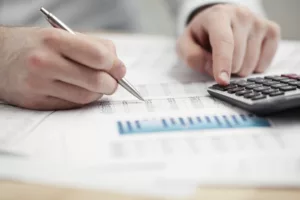As a busy medical student, it’s natural to feel like the last thing you want to dedicate an afternoon or evening to is doing your tax return. However, tax time is around the corner and now is the time to get prepared and understand what is required.
What is a tax return?
A tax return is an ATO obligation which reconciles the tax you have paid with the tax you should have paid in a financial year (for the period of July 1 – June 30). A tax return includes your income and deductions that generate your taxable income. You can then work out the tax amount on that figure, if the amount of tax you have paid is currently lower than what you should have paid, then you will be in a tax payable position. On the other hand, if you have paid more tax than you should have, then the ATO will issue a tax refund.
Understanding what your income and deductions are becomes important and the complexity of medical student tax returns varies depending on your line of work and the different entities you run. With the difficulty of your medical degree it is more likely than not that you will only be participating in part-time or casual work so this is what this article will be focusing on.
When do I need to lodge a tax return?
It is likely that a spike in tax returns could occur this financial year due to the stimulus packages introduced by the government in order to boost the economy. University students eligible for JobSeeker and JobKeeper payments this year might find themselves having to lodge their first ever tax return as well as those receiving larger sums of youth allowance.
Find out if this is you
If you incurred any one of the following during the financial year it is an ATO obligation to lodge a tax return:
- Earned an income or taxable income over $20,452,
- Had any tax withheld,
- Paid instalments under the pay as you go system,
- Carried on a business,
- Received a trust or partnership distribution,
- Had shares that paid dividends throughout the year,
- Made a loss on a capital asset,
- Received employer paid allowances, or
- Had a fringe benefit amount on your PAYG Summary.
These are just some of the reasons a tax return is required. The ATO offers a simple calculator which is a useful tool to help determine if a tax return is required.
Remember all 2020 individual tax returns are due by 31 October 2021 if you plan to do your tax return yourself. If you have a registered tax agent to lodge your tax return, you have more time as tax agents have extended tax deadlines.
What do I need to know to lodge a tax return?
Knowing your income and deductions is important in ensuring you lodge a correct tax return. The ATO has the power to audit and issue fines should you not follow the rules and guidelines of a tax return. Below is a checklist of what might need to be included in your tax return:
Income
- Employment income (PAYG Payment Summary or Income Statement),
- Government allowances (Youth allowance, Austudy, JobSeeker, JobKeeper),
- Interest (bank and cash management accounts),
- Share dividends,
- ABN income,
- Family trust distributions, or
- Asset disposal (capital gain/loss).
Deductions
- Car travel / motor vehicle expenses (logbook or km estimate),
- Laundry / dry cleaning / work uniforms,
- Travel (fares, taxis, ubers, flights and accommodation),
- Memberships / subscriptions,
- Self-education and professional development,
- Conferences / seminars,
- Reference books / library / journals,
- Stationery / printing,
- Equipment,
- Home Office (two methods – actual expenses or 80 cents per hour)
- Mobile phone and internet,
- Union fees,
- Donations,
- Accounting fees, or
- Working with children and police checks.
Other stuff to include
- HELP debt,
- Private health insurance, or
- Superannuation contributions.
Keep in mind that deductions must correlate to your current full time or part-time job and specific rules must be followed in order to claim the deductions. Receipts and invoices should be kept and the ATO has the right to ask for further evidence when claiming any deduction.
Disclaimer: * The information contained in this site is general and is not intended to serve as advice as your personal circumstances have not been considered. DPM Financial Services Group recommends you obtain personal advice concerning specific matters before making a decision.





